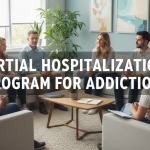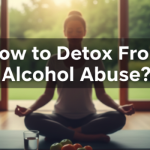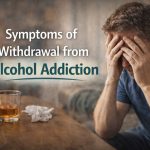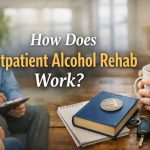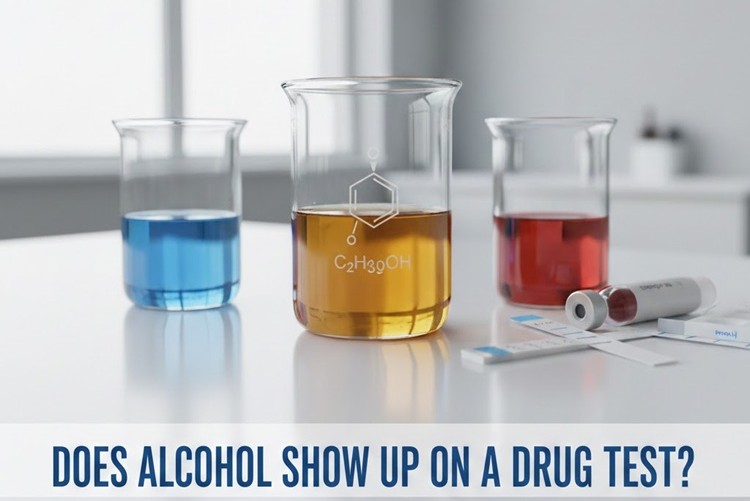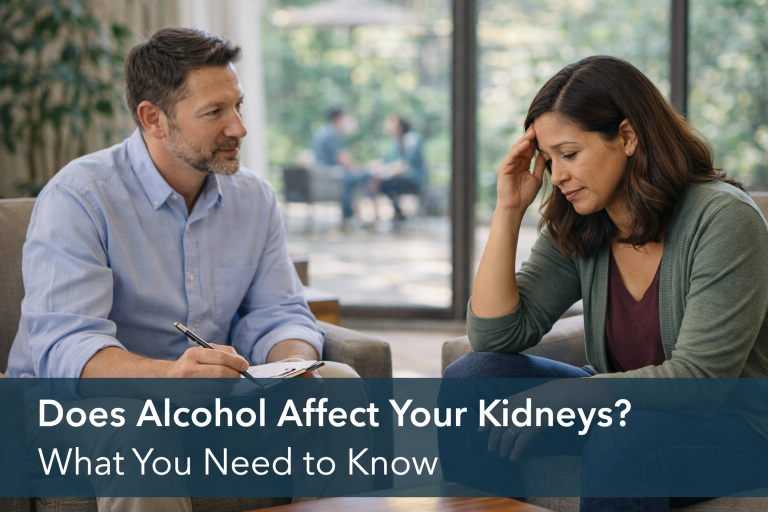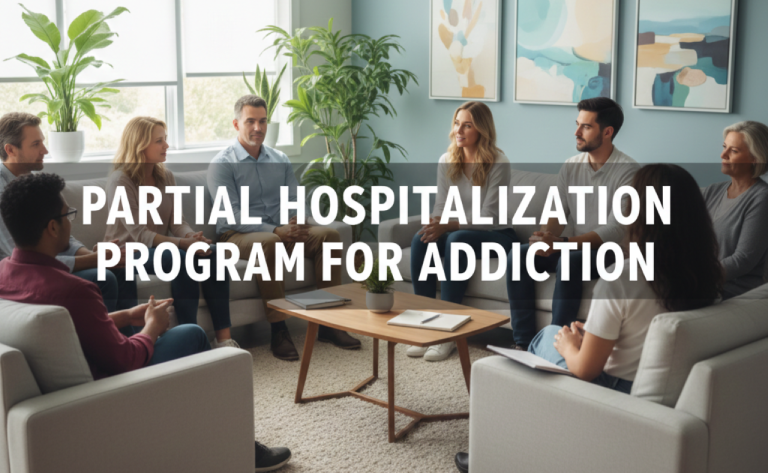Overcoming alcohol addiction is an achievement, but that’s not the end of the journey. The reality is that learning how to stop a relapse is one of the most important parts of alcohol recovery. As people set out to live a long-term sober life, many of these people find the threat of relapse looming.
Relapse is a complex and difficult process, but with the right tools and help, you can prevent it. It doesn’t mean recovery is a straight line and preventing relapse doesn’t mean it doesn’t come with challenges. But knowing what the common triggers are, the warning signs, and having healthy coping mechanisms means that the risk of returning to old habits can be massively reduced.
In this article, you will learn the best ways to prevent relapse in alcohol recovery: how creating support, following a daily routine, and being involved in self-care can help with alcohol recovery and replacing drinking habits with healthy ones.
Understanding Relapse
Before we delve into the stone, it’s important to know what relapse means in alcohol addiction treatment. Relapse is most commonly defined as drinking alcohol after a period of abstinence. But it’s not nearly as simple as picking up a drink again. Relapse may be a gradual process and may start far in advance of when the individual drinks.
Relapse typically occurs in three stages:
- Emotional Relapse: During this second stage a person may not be thinking about drinking but may be feeling stressed, anxious, or even depressed. If not addressed, this emotional turmoil can lay the path to relapse.
- Mental Relapse: In this case, a person starts to think about alcohol more and begins to idealize their past drinking behaviors or twist their brain into thinking they can “just have one drink.” They can lead to the eventual physical relapse.
- Physical Relapse: Where a person takes in alcohol. By this point in the relapse, the other stages may have been present for a while.
Understanding these stages helps those in recovery act early. Knowing how times of recovery are universal to all addicts and relapse is a process that you can identify and prevent.
Strategies to Prevent Relapse
The prevention of relapse is an active decision and process. Change management is a process that calls for one’s attention, preparation, and daily effort to put things in place to manage stress. Here are some effective ways to prevent relapse during alcohol recovery:

1. Building Support Network
One of the most efficient ways to prevent relapse is to have a strong support network. The family of the network can be family, friends, fellow persons from the same recovery group, or mental health workers. Some of the factors that can help maintain a sober life are; emotional backing, motivation, and balance.
Groups can offer individuals a sense of belonging because they have people who know what it is like to recover. These groups include group counseling and individual counseling, which are very important in fighting loneliness and isolation. Also, counseling with a counselor or psychologist helps people address tasks related to emotions and find ways how to cope with them.
In recovery, one must have people surrounding them who will support his or her sobriety and the struggles that come with it. It is very important to remain in touch with your support network, more so when one is experiencing periods of vulnerability.
2. Creating and Following a Strict Daily Schedule
The structure can be a very comforting and a very crucial factor to have in early sobriety as the body and the mind are still going through the process of readjusting to a life that doesn’t involve alcohol. The creation of a daily schedule is very useful in ensuring that people are on the right track in their work and personal lives.
A well-structured routine may include:
- Morning rituals: Beginning the day in a good way, by doing some things like meditating, writing in a journal, or exercising, can help to have a good day.
- Work and hobbies: Avoiding boredom can help you avoid relapse, as one of the things that may lead to relapse is boredom.
- Evening self-care: By engaging in relaxation activities in the evening for instance reading or having a bath, one is in a better position to sleep.
- Consistent meal times and exercise: It is important to take care of the body to be able to take care of the mind. Eating well-balanced diets and exercising often can also prevent stress and boost one’s mood.
Thus, people can avoid free time and prepare for the day, which will help them cope with the emotional fluctuations that might cause relapse.
3. Using Healthy Coping Mechanisms
Stress is one of the biggest causes of people falling back into alcoholism while in the recovery process. Stressors like pressure at work, family problems, or financial issues may lead to the urge to take a drink. Everyone needs to learn how to handle stress healthily and this is especially important for those in recovery.
Some stress management techniques include:
- Mindfulness and meditation: These practices enable people to be in the present time and decrease their stress levels as well as regulate their emotions.
- Physical exercise: Endorphins are chemicals released by the body during physical activity and can improve one´s mood and decrease stress. Physical activity is also a good method of maintaining good health and preventing the compulsive use of substances.
- Breathing exercises: Deep breathing exercises may be very useful for reducing stress and the rate of breathing during stressful moments.
- Creative outlets: Leisure activities like painting, writing, and music can help a person to vent frustration and divert their attention from craving.
Stress management techniques should therefore be adopted daily as a way of ensuring that the patient maintains his or her emotional balance and to ensure that stress doesn’t tempt the patient to relapse.
Contact Orlando Treatment Solutions
Relapse prevention is not something you have to face all by yourself. We provide relapse prevention therapies at Orlando Treatment Solutions that are designed to fit your particular recovery plan. If you need therapy, counseling, or even more support to keep you going and maintain your sobriety, we are here for you. Please contact us today to find out how we can help you.
4. Creating a Relapse Prevention Plan
If you are in alcohol recovery, a relapse prevention plan is necessary. Using this plan helps you gauge challenges to come and get ready for challenging situations. This is a guide on how to keep sobriety when you have emotional, mental, or physical temptations that fight your way to keep clean.
A relapse prevention plan should include:
- Identifying Triggers: Name the emotions, people, or situations that make you want alcohol. With triggers, it’s easier to know how to avoid or address them.
- Developing Coping Mechanisms: Learn healthy ways to manage and cope with stress and negative emotions. This could look like hobbies, exercise, or contacting a support group.
- Emergency Contacts: You have a list of people you can call when tempted to drink. The thought of knowing you can reach out to someone if you need talking or comfort or accountability in moments where that’s important.
5. Focus on Self-Care
Taking care of yourself is important to staying healthy physically and mentally while recovering. If you take care of your body and your mind, you’ll have an easier time handling the peaks and valleys of life without drinking alcohol.
Some important self-care practices include:
- Healthy Eating: The energy and nutrients your body needs to function properly come from a balanced diet. This can also even stabilize your mood and help your overall well-being.
- Exercise: Physical activity also regularly provides many benefits to people, such as a reduction in stress and improved mood and energy levels. Exercise also helps sleep, which is essential for mental health.
- Mental Health: Care for the health of your emotions. It could be getting therapy, taking up mindfulness or meditation, or doing some creative hobby that helps you chill and relieve stress.
This is an investment in your long-term sobriety. The more physically and emotionally you feel, the less likely you are going to fall into negative patterns of behavior.

Relapse prevention in alcohol recovery is not about preventing failure—ever—but about arming yourself with the equipment, support, and methods to stay sober. Understanding the stages of relapse, building a strong support system, having a structured routine, managing triggers, and taking care of yourself can reduce your risk of relapse greatly and continue down the road to long-term recovery.
If you or a loved one needs help staying sober, get in touch. We at Orlando Treatment Solutions want to help you overcome the hurdles of recovery and build solid recovery strategies. Contact us today to learn more about our treatment programs.









